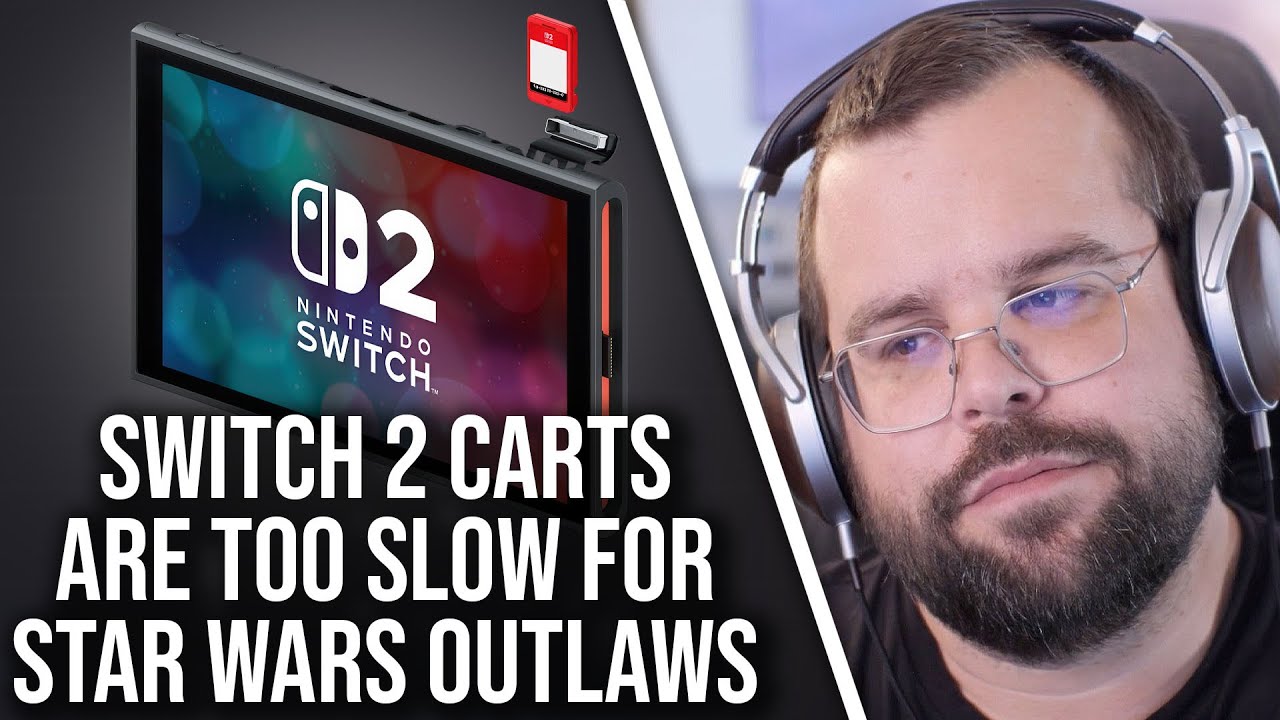Star Wars Outlaws will be released as a digital key card on the Switch 2 due to the slow eMMC speeds of physical cartridges, which cannot support the game’s heavy streaming demands. While physical media remains popular on the platform, especially for instant play and storage reasons, future solutions like hybrid cartridges may be needed to balance performance and the benefits of physical ownership.
The discussion begins with the revelation that the upcoming game Star Wars Outlaws will not be shipped on a traditional physical game card for the Switch 2, but rather as a digital key card. This decision was influenced by performance limitations of the Switch 2 cartridges. Rob Banton, an audio architect at Ubisoft, explained that the Snowdrop engine used in the game relies heavily on disc streaming for open-world environments, and the Switch 2 cartridges simply do not provide the necessary speed to meet the quality targets. This highlights a significant performance bottleneck, as the Switch 2 game cards use eMMC storage with a maximum transfer rate of 400 MB/s, which is substantially slower than the internal SSD storage speeds of current-gen consoles, typically around 2 GB/s.
The speakers delve into the technical implications of these storage speed differences. While the internal Switch 2 storage is comparable to Xbox Series consoles in speed, the game cards lag behind considerably. This discrepancy affects loading times and streaming performance, making it challenging for games designed around fast SSD access to run optimally from a physical cartridge. They speculate that if a game were designed from the ground up for the Switch 2’s storage constraints, it might be possible to ship it on a cartridge, but porting current-generation titles with heavy streaming demands poses difficulties.
An interesting potential solution discussed is the idea of hybrid game cards, where the physical card acts as a data store but requires some form of installation or downloading from the card itself, similar to older console install practices. This could help balance the desire for physical media with the technical demands of modern games. The conversation also touches on how some PC games, like Cyberpunk 2077, have been adapted to work with slower storage devices, including mechanical hard drives, and how this flexibility allowed Cyberpunk to be shipped fully on a physical Switch 2 card, including DLC, which contrasts with Star Wars Outlaws’ approach.
The conversation then shifts to market data showing that 75% of Cyberpunk 2077 sales on Switch 2 were physical copies, which challenges the prevailing narrative that digital sales dominate gaming. This high physical sales percentage underscores the importance of physical media for the Switch 2 platform, partly due to limited internal storage and the high cost of expandable storage options like microSD Express cards. Physical game cards provide the convenience of instant play without installations, which remains a significant appeal for many gamers and preserves a classic console experience.
In conclusion, the discussion highlights that while physical media remains important for the Switch 2, technical limitations of cartridge speeds present challenges for certain types of games, especially those relying on fast streaming from storage. The situation underscores the trade-offs between physical and digital distribution and the evolving nature of game development and hardware capabilities. It also suggests that future innovations, such as hybrid cartridge-install models, may be necessary to reconcile these issues and maintain the benefits of physical game ownership on the platform.
